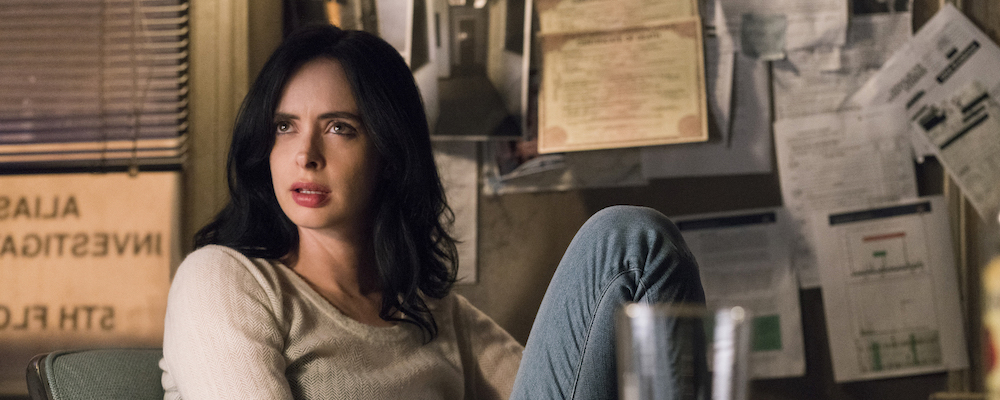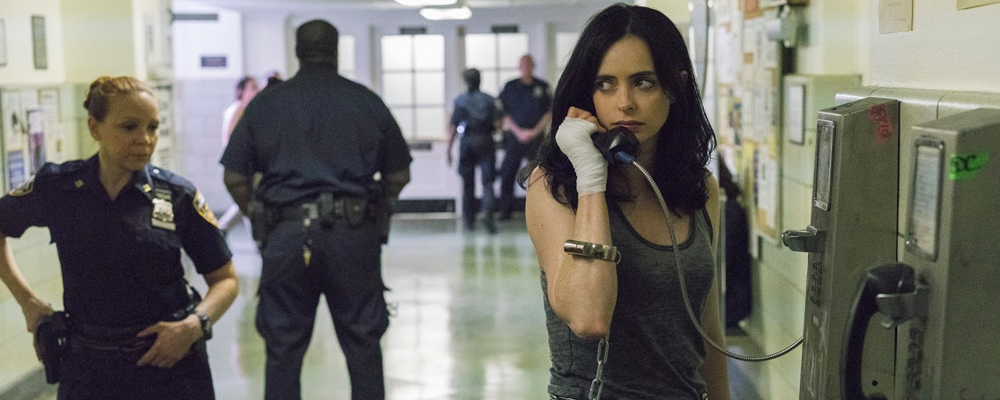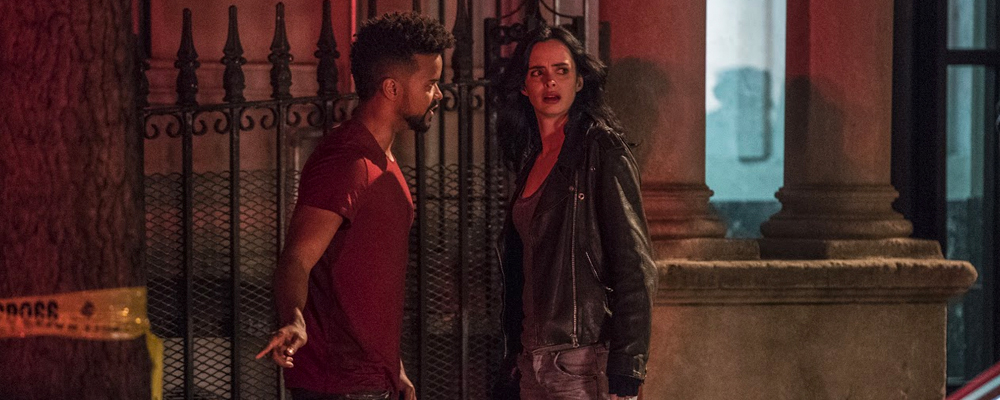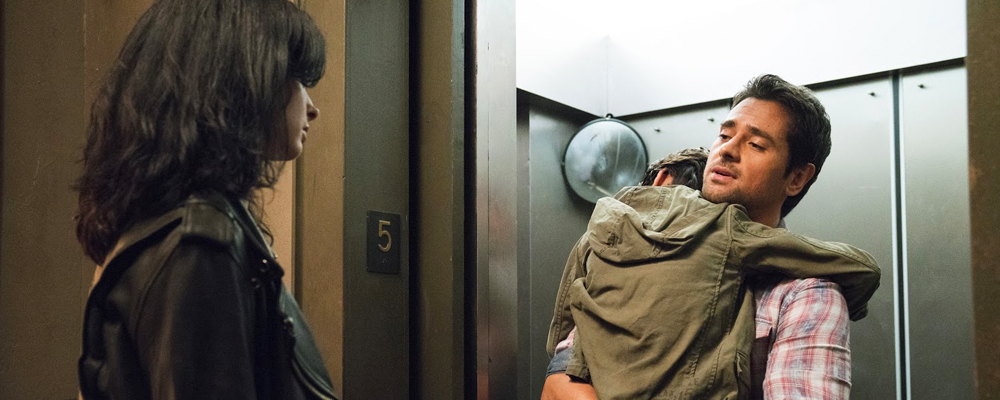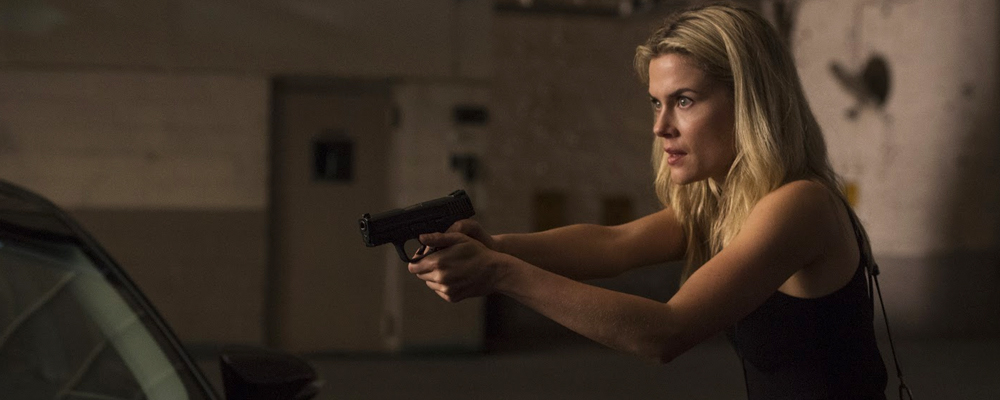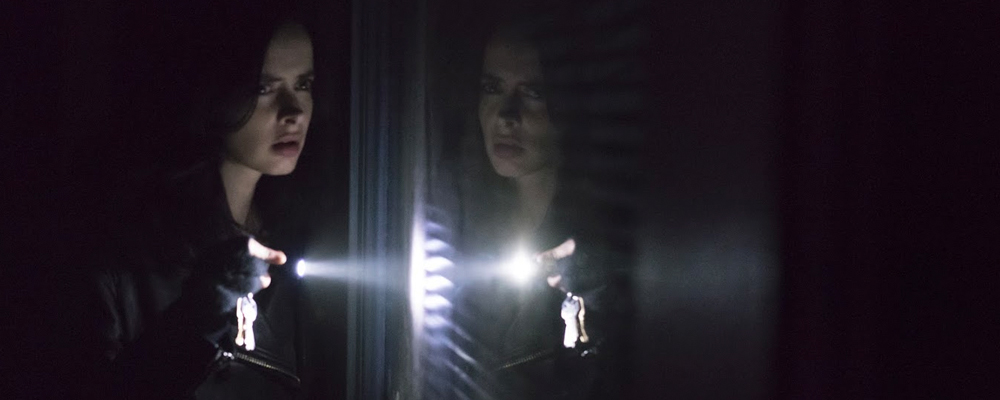‘Jessica Jones’ Season 2 Is a Gritty Exploration of Powerful Women
Aaron Berke
When we last saw Jessica Jones, she was fighting alongside Daredevil, Luke Cage and Iron First in the team-up series “The Defenders.” Jessica Jones stood out in the ensemble for being the only woman in the crew, but also for having the biggest personality. Jessica’s tough-as-nails, no-nonsense attitude was idiosyncratically charming, but “The Defenders” gave us only a taste of her raw personality. Thankfully, we now have the return of her solo series “Jessica Jones,” which premieres all 13 episodes of season two March 8 on Netflix.
“Jessica Jones” season one was largely dominated by its villain, Kilgrave, who had the ability to control people’s minds and make them do whatever he wanted. Jessica (Krysten Ritter) had been one of Kilgrave’s early victims, and she spent the season fighting against him, both physically and psychologically. By the end of the first season, Jessica finally faced off against Kilgrave with the help of her adoptive sister, radio host Trish Walker (Rachael Taylor) and her drug addicted next-door neighbor turned ally Malcolm Ducasse (Eka Darville). Jessica snapped Kilgrave’s neck, turning herself into something unthinkable for a super hero – a killer. Season two opens with Jessica dealing with the consequences of her actions.
“Jessica Jones” season two immediately sets itself apart from the first season with the notable lack of a main adversary. Kilgrave dominated season one from the very first episode, turning Jessica and her allies into play things in Kilgrave’s world. But that world has been shattered. Jessica is now the master of her domain, and New York City is her play thing. Season two thus becomes Jessica’s story, focusing on her struggle to reclaim her missing past, and unlock the mysteries behind her super powers.
In season two, Jessica attempts to keep a steady client roster at Alias Investigations, the P.I. firm she runs out of her apartment. Malcolm has officially become her assistant, attempting to help Jessica in her day-to-day operations. Unfortunately, the well of clients has run dry. Things become further complicated when a new P.I., Pryce Cheng, shows up attempting to buy out Jessica to erase the competition. Naturally, Jessica doesn’t take it well. In a memorable first episode sequence, Jessica beats the hell out of Cheng in front of numerous witnesses. Jessica realizes in horror that she’s close to pulling another Kilgrave. This leads into one of season two’s most prominent themes; prejudice against people with super powers.
Jessica must rectify this prejudice with her own guilt about murdering Kilgrave. Season two reveals a Jessica that’s returned to some of her favorite vices: spending her nights in bars, drinking endless glasses of whiskey, and having sex with random strangers in bathroom stalls. Jessica’s self-loathing was apparent in season one, but it completely overtakes her in season two. This is partially due to Trish’s investigation into Jessica’s history. In the first episode of season two, Trish brings Jessica her family’s ashes, which launches Jessica’s repressed memories into overdrive. Despite Jessica’s resistance to uncovering her past, she relents and does what she does best – investigates. At the end of episode one, Jessica discovers an abandoned hospital where a company called I.G.H. did experiments on people, apparently giving them super powers. Jessica begins to remember. As she stares at the ruins of an operating table, a horrifying specter appears; a figure with a hideous red face and unspeakable power. Someone who received powers like Jessica, but who’s transformation went terribly, terribly wrong.
“Jessica Jones” has always been about dealing with trauma, but season one largely focused on trauma related to one individual, Kilgrave. The trauma Jessica deals with in season two is much broader, and as such, the season hones in on Jessica and her allies. Unlike season one, the villain is at first unclear, his or her identity hidden in the shadows. As a result, season two is immediately less gripping than its predecessor, but more probing. Kilgrave’s choke-hold on season one granted it unrelenting intensity. With Kilgrave gone, Jessica’s world is now allowed to breathe and become its own entity.
While season two does not have the immediate visceral impact of its predecessor, it does feature a stronger focus on the characters, and as a result feels more intimate. Every character deals with their own personal trauma and tries to rectify it. While Jessica attempts to uncover her past, Trish deals with her own demons. Trish spends much of the early season two episodes trying to uncover information about Jessica’s memory gaps, and this leads Trish toward figures from her own past. Trish needs information from her abusive mother, who made Trish into a child star against her will. From meeting her mother, Trish then is forced to face someone even worse. She tracks down the sleazy director of her old TV series, a pervert who seduced her as a 15-year old. Trish repeatedly tests her own strength and resolve as she tries to help her adoptive sister. Meanwhile, attorney Jeri Hogarth (Carrie-Anne Moss), who in season one was mostly relegated to a side role as Jessica’s boss, has a powerful role in season two. Hogarth is diagnosed with ALS early in the season, and starts down a self-destructive path, filled with cocaine, female prostitutes and wild party nights. Hogarth also must fight back against her law firm, as her associates discover the ALS diagnosis and attempt to force her out.
There’s something remarkable and quite natural about the evolution of “Jessica Jones” between seasons. The series began with its female characters entrapped by a man. Season one depicted women trapped in man’s world. At the end, the women broke free. Season two features a world that now entirely belongs to the women, and the female characters’ new level of empowerment feels entirely appropriate. Jessica, Trish and Hogarth each have their own personal demons to face, but each tackle them independently, with palpable strength and hardened resilience. These women cannot be stopped.
In addition to women’s empowerment, “Jessica Jones” season two also stealthily tackles modern themes of prejudice, using super powered people to stand in for oppressed minorities. In season two, super-powered people are being steadily killed off. In addition, Jessica’s new building super, Oscar, makes her life a living hell. He attempts to force her out because of her powers. In the first episode, a man with speed powers is killed right in front of Jessica and Oscar. When the police question Jessica about her involvement, she takes them to Oscar and asks him to vouch for her. Oscar refuses, pretending he saw nothing. A miffed Jessica later demands an explanation, and Oscar vehemently accuses her of being a danger to everyone in the building, especially his son, who he wants to protect at all costs. The irony is that Jessica’s entire purpose is to help the innocent. Yet the reality of intention is totally null and void when prejudice comes into play. “Jessica Jones” uses its super powered protagonist to address the blind ideology at the heart of prejudice, a theme that’s highly reflective of today’s world.
As season two continues, Jessica’s memories slowly unlock, filling out her world and making each character’s story even richer. Jessica began the series as a distinctively sassy, flippant and hard-edged woman. In season one, her personality quirks were sidelined because of a destructive male presence. Now that Kilgrave’s influence has dissipated, season two allows Jessica to shine even brighter. With her distinctive voice and consistent refusal to back down, Jessica is the perfect hero for the women’s movement. Season two proves that Jessica Jones is here to stay.
“Jessica Jones” season two premieres March 8 on Netflix.

